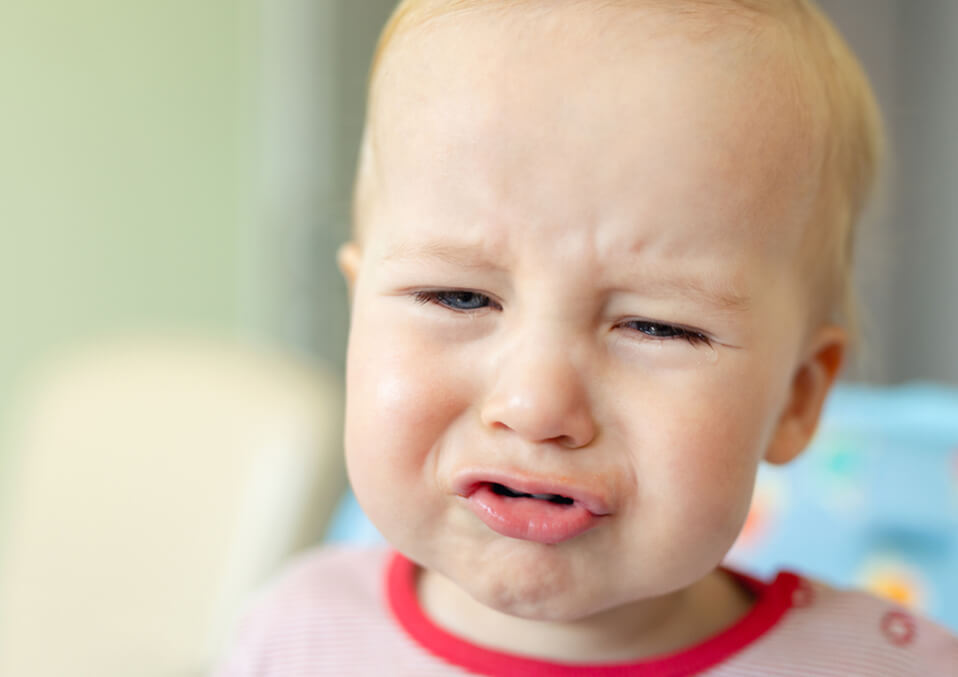
If the babies are born prematurely or with some medical concerns, the feeding schedules should be based on the advice of your pediatrician. Yet, for those full-terms healthy infants, rather than based on the time for hunger cues, parents can just look at their babies. Above all, the question here is how much should a newborn eat?
You may be worried to let your baby starts eating as soon as possible. Yet, the first day can be impossible since the newborn can be tired like the mom. The first twenty-four hours of the baby on earth can be his/her learning time to learn literally, how to be alert when to eat. If your baby is not showing much attention to eating every 2 hours as scheduled, don’t fret right away.
You may be surprised if your newborn is eating during the breastfeeding period right on the 1st day of his/her life. This is normal, so nothing to be worried about. Just remind yourself that until your real milk comes after around 3 days, your baby is only taking the colostrum. What is colostrum? This is concentrated food packed with nutrients and calories-right enough to sustain the little needs of the first few days, this means quality is over the quantity. On average, a healthy newborn can have a one-half ounce of the colostrum for the very first 24 hours. Yet, just remember all beings are unique, even babies.
The hunger cues of anger

Commonly, a newborn would cry if feels hungry. But, it is always better to identify the various hunger cues, right before your baby starts to cry. Since crying is already the last sign and you may find it hard to let the baby eat and or settle down.
Other usual hunger cues include:
- The newborn babies lick their lips
- They are sticking their tongues out
- Rooting (moving mouth, jaw as well head in search of the breast)
- Repeatedly putting their hands to mouth
- Keeps on opening their mouth
- Fussiness
- Sucking everything or what they see around
As parents, you also need to understand that it does not the baby is crying, it means being hungry right away. Because there could be various factors to look into. The babies may suck not for a single reason for being hungry, alone, but it can be they are asking for some comfort or attention. It could be they need to be changed or cuddled.
Baby feeding general guidelines:

Keep in mind always that the baby’s characteristics do vary. Some wanted to have some snacks often, while others drink more and in terms of feedings, they go longer between. Yet, as the baby grows, they tend to drink more, hence their stomachs are more capable to hold much milk than before.
Commonly, newborn babies eat after two to three hours or approximately 8-12 times every 24 hours. For the newborn babies’ first 1-2 days they can consume ½ ounce every feeding. Soon after, they can take 1-2 ounces per feeding. This will substantially increase to 2-3 ounces when they reach two weeks old.
As the babies reach two months, it will increase into 4-5 ounces each feeding right after every 3-4 hours. At four months, the consumption will be 4-6 ounces, still by every feeding. At six months, babies could intake up 8 ounces every 4-5 hours. Therefore, the amount of formula will increase by about 1 ounce every month before equating to 7-8 ounces per feeding session. If your babies reach six months, you can start feeding them solid foods. These pieces of information are right enough to answer if how much should a newborn eat.
Overfeeding or underfeeding concerns:

Too full?
Often, babies are naturally good at eating the necessary amount, however, there are instances, it can be more than they need. Those bottled feeding infants are commonly the ones who get overfed. Since drinking from a bottle needs lesser effort than pure breastfeeding.
Those babies who were overfed may experience stomach aches, vomiting or spitting, gas issues that later can be prone to obesity. The key is just to offer a less amount since you can provide more if the baby wants it. This time is also helping the baby to recognize if they are already full.
If your main concern is that your baby is seemed unstoppable in terms of eating, although your child is already full- the best way to do is to seek help from your Pedia right away. You may have pacifiers soon after the feeding, its purpose is to soothe the healthy weight of the baby who always likes to suck for comfort instead of for nutrition.
Having trouble gaining some weight?
Do you know that after five months from birth, your baby’s weight can be doubled? And, this weight can be tripled the moment your bay celebrates the first birthday. If what troubles you is your baby’s weight that seems not growing, don’t wait for any longer between feeding, even if it means you have to wake your baby to be fed. Just be sure you discuss with your pediatrician about how much and how often you need to let or feed your little one.
How to know if the baby is getting enough to eat?
Baby’s daily diapers:
To know if the baby is getting enough to eat, his/her newborn diaper is a perfect indicator. In a few days after birth, your baby should be 2-3 wet diapers a day. After 4-5 days, it will increase to at least 5-6 wet diapers. While the frequency of the stool is into the variable, depending on if your newborn is formula-fed or into breastfeeding.
Growth charts:
This is done every regular checkup, where the Pedia would monitor the weight of your baby and plot in the growth chart. This is one of the best indicators to tell if your baby is getting enough food. Those who belong in the percentile of healthy growth ranges have potentially received healthy food servings in every feeding time.
If you are still having a hard time understanding how much should a newborn eat? Remember… ask the experts.
Read also:
- What to Set in a Newborn Baby’s Wardrobe
- The Surprising Facts About Newborn Snorting And Snoring
- Proven and Effective Ways on how to React with Your Newborn


